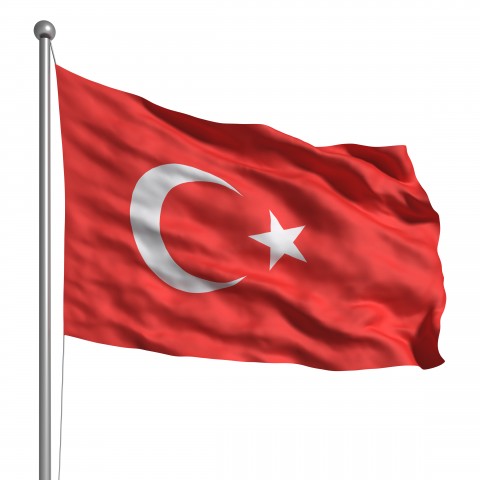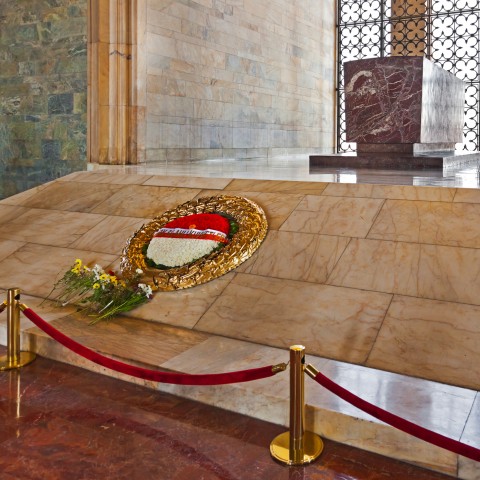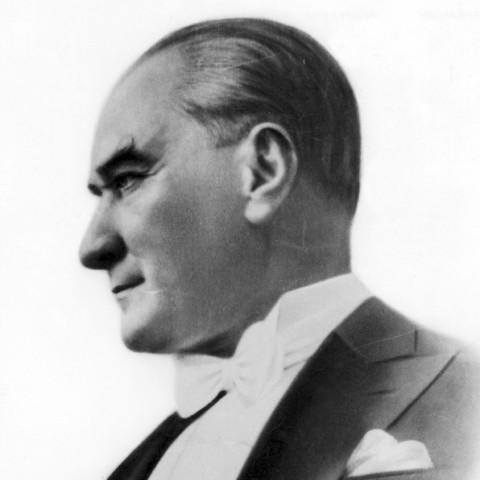Every year, the Turkish people commemorate one of the greatest leaders the country has known: Mustafa Kemal Ataturk. In this article, you’ll learn about how Turkey honors Ataturk’s memory, and explore some of Ataturk’s contributions to Turkey—and the world. In short, you’ll gain a clear picture of what the Turkish people remember Ataturk for, and why it’s significant.
As any successful language-learner can tell you, understanding a country’s culture is a step you can’t miss!
At TurkishClass101.com, we hope to make every aspect of your language-learning journey both fun and informative! Let’s get started, and delve into this Turkish national holiday.
1. What is Atatürk Remembrance Day?
Mustafa Kemal Atatürk passed away of cirrhosis on November 10, 1938, at 09:05 in Dolmabahçe Palace. His casket, draped in a flag, was placed on a catafalque for a moment, while residents of Istanbul mourned deeply. Following the funeral prayer and cortege, during his mausoleum’s construction, Atatürk rested in a marble tomb in the Ethnography Museum of Ankara for fifteen years. After the completion of Anıtkabir, his casket was transferred to his final resting place.
Mustafa Kemal Atatürk was not only an extraordinary leader and a revolutionary officer, who advocated peace, democracy, secularism, basic rights, and freedom, but he was also an academic research enthusiast. Even though today he might be considered to be ultra-nationalistic by some, he has always been admired and respected internationally as a leader, for his long-sightedness, ideas, and military achievements. One of his most famous sayings summarizes his ideas: “Peace at home, peace in the world.”
Mustafa Kemal was granted his surname, which is the combination of the words “father” and “Turk,” by the parliament right after the surname law in 1934.
2. When is Ataturk Commemoration Day?
Turks celebrate Ataturk Remembrance Day each year on November 10, the date of this beloved figure’s death.
3. Ataturk Memorial Day Traditions & Celebrations
Every year on November 10 at exactly 09:05, sirens sound throughout the country. All traffic stops, drivers and travelers get out of their vehicles, and people in their offices take a break and stand up. In schools, students will already be expecting this time and join the rest of the country.
Life stops at this time, and while the sirens wail, everybody in the country stands up as a gesture of respect. Following the sirens, in schools and government agencies, people sing the National Anthem.
4. Six Important Ataturk Principles
Can you name the six principles of Atatürk’s that have affected recent Turkish history?
These principles are:
- Republicanism
- Populism
- Secularism
- Reformism
- Nationalism
- Statism
5. Must-Know Vocabulary for Ataturk Remembrance Day
Here’s some essential vocabulary for Ataturk Remembrance Day!
- Mustafa Kemal Atatürk — “Mustafa Kemal Ataturk”
- Türk Bayrağı — “Turkish flag”
- Anıtkabir’e çelenk koymak — “Place a wreath on the Mausoleum of Ataturk”
- Yas tutma — “Mourning”
- Saygı duruşu — “Moment of silence”
- Askeri geçit — “Military parade”
- Bayrak asmak — “Fly a flag”
- Bayrak sallama — “Flag-waving”
- Anma töreni — “Commemorative ceremony”
- Atatürk büstü — “Bust of Ataturk”
- Atatürk rozeti — “Ataturk badge”
- İstiklal Marşı — “Turkish National Anthem”
- Anıtkabir — “The Mausoleum of Ataturk”
To hear the pronunciation of each word, and to see them accompanied by relevant images, visit our Ataturk Remembrance Day vocabulary list!
Final Thoughts
We hope you enjoyed learning about this Turkish national holiday with us!
Did you learn anything new? Does your country have a similar holiday celebrating a beloved historical figure? Let us know in the comments! We always look forward to hearing from you!
Being able to discover a country’s culture may be the most rewarding and exciting aspect of trying to master its language. If more cultural information is what you’re after, be sure to check out the following pages on TurkishClass101.com:
- After Ramadan: The Turkish Feast of Sacrifice
- Tourist Attractions in Turkey
- Turkish Pop & Traditional Culture
- 4 Reasons Why Turkish Slang Words Will Make You Fluent
- Top 20 Words You’ll Need for the Internet
For even more Turkish learning opportunities, be sure to create a free basic account today! By upgrading to Premium Plus, you can further accelerate your learning with your own personal Turkish tutor. You really can master the language, and we’ll be here with constant support and effective learning materials every step of the way!
Happy Turkish learning!













